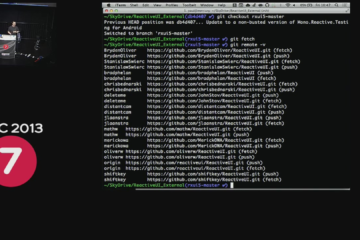In the world of programming, particularly in the realm of Java, the concept of immutability is a topic of paramount importance. Java, being one of the most widely used programming languages, has certain features and characteristics that set it apart from others. One such unique feature is the immutability of strings. In this comprehensive article, we delve deep into the reasons why string objects are immutable in Java, shedding light on the significance and implications of this fundamental concept.
What is Immutability?
Before we dive into the specifics of why strings are immutable in Java, let’s grasp the concept of immutability itself. In programming, an object is said to be immutable when its state cannot be altered once it is created. In the context of strings in Java, this means that once a string is created, it cannot be modified. Any operation that appears to modify a string actually creates a new string with the desired changes, leaving the original string intact.
The Importance of Immutability
Immutability brings several advantages to the table when it comes to programming in Java. Understanding these benefits is crucial in comprehending why string objects in Java are designed to be immutable:
1. Thread Safety
In a multithreaded environment, ensuring that data remains consistent and uncorrupted is a significant challenge. Immutability simplifies this issue. Since immutable objects, like strings, cannot be changed, they are inherently thread-safe. Multiple threads can access and use immutable strings without the risk of interference or data corruption.
2. Caching
Java’s String Pool, a special area in memory, stores unique string literals. When a new string is created, Java checks the String Pool to see if an identical string already exists. If it does, the existing string is returned, promoting memory efficiency. Immutability ensures that strings in the pool remain unaltered, as any attempt to modify a string creates a new one.
3. Security
Immutability plays a critical role in security-sensitive operations. For instance, when dealing with sensitive information such as passwords or encryption keys, the immutability of strings ensures that the data cannot be inadvertently or maliciously altered once it’s set.
4. Predictable Behavior
In Java, immutability provides predictable and consistent behavior. When you pass a string to a method or another part of your code, you can be certain that it won’t change unexpectedly. This predictability simplifies debugging and enhances code reliability.
Also Read: Why Your Modern Web App Cannot Do Without Laravel and React.js
Reasons Behind String Immutability in Java
Now that we’ve established the significance of immutability let’s explore the specific reasons why strings are immutable in Java:
1. Security
Java places a strong emphasis on security, and immutability plays a crucial role in this regard. By making strings immutable, Java ensures that sensitive data remains unaltered and protected from unauthorized modifications. This is particularly vital when handling user credentials, encryption keys, and other security-sensitive information.
2. String Pool Optimization
As mentioned earlier, Java maintains a String Pool to optimize memory usage. Immutability is a key component of this optimization strategy. When you create a new string, Java first checks if an identical string already exists in the pool. If it does, the existing string is returned, reducing memory consumption. Immutability guarantees that strings in the pool remain unchanged, enabling efficient caching.
3. Thread Safety
In a multithreaded environment, thread safety is a paramount concern. Immutability ensures that strings can be safely shared among multiple threads without the risk of data corruption. Since immutable strings cannot be modified, threads can read and use them concurrently without synchronization overhead.
4. Performance Benefits
Immutability can lead to performance benefits in certain scenarios. For instance, when concatenating strings, Java can optimize the process by creating a new string that references the original strings. This avoids the need to copy the entire content of the strings, resulting in improved performance for string operations.
5. Design Philosophy
Java’s design philosophy places a premium on simplicity and predictability. Immutability aligns with these principles by ensuring that objects behave consistently and predictably. When you pass a string to a method or use it in your code, you can rely on its value remaining unchanged.
Conclusion
In the world of Java programming, understanding why string objects are immutable is essential for writing efficient and secure code. Immutability brings benefits such as thread safety, memory optimization, and security enhancements. Java’s design philosophy and the String Pool optimization further underscore the significance of this concept.
In conclusion, immutability is not merely a quirk of Java strings; it is a deliberate design choice with profound implications for the language’s performance, security, and reliability. Embracing the concept of immutability in your Java programming endeavors can lead to more robust and efficient code.
FAQs
1. Is string immutability unique to Java?
- No, other languages like Python and C# also have immutable string types.
2. Does using immutable strings mean I can’t modify strings in Java?
- You can modify strings, but it involves creating new string objects.
3. How can I efficiently concatenate strings in Java?
- Use the
StringBuilderclass for efficient string concatenation.
4. Are immutable strings always more memory-efficient?
- Immutable strings are often memory-efficient, but there are exceptions.
5. Can immutability prevent all string-related security issues?
- While it helps, immutability alone cannot address all security concerns.




